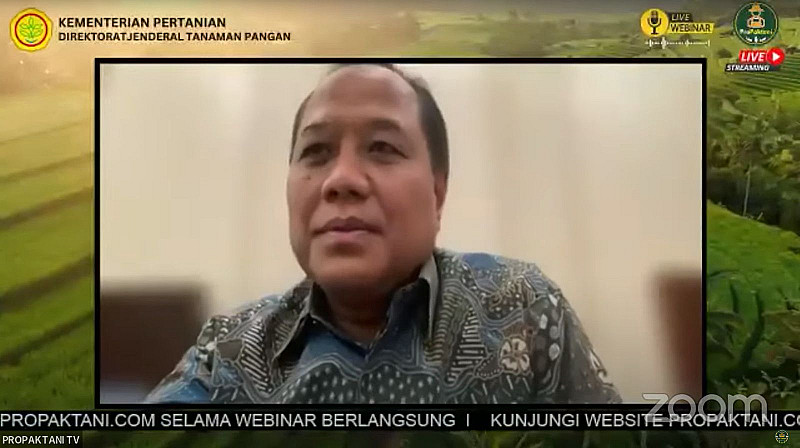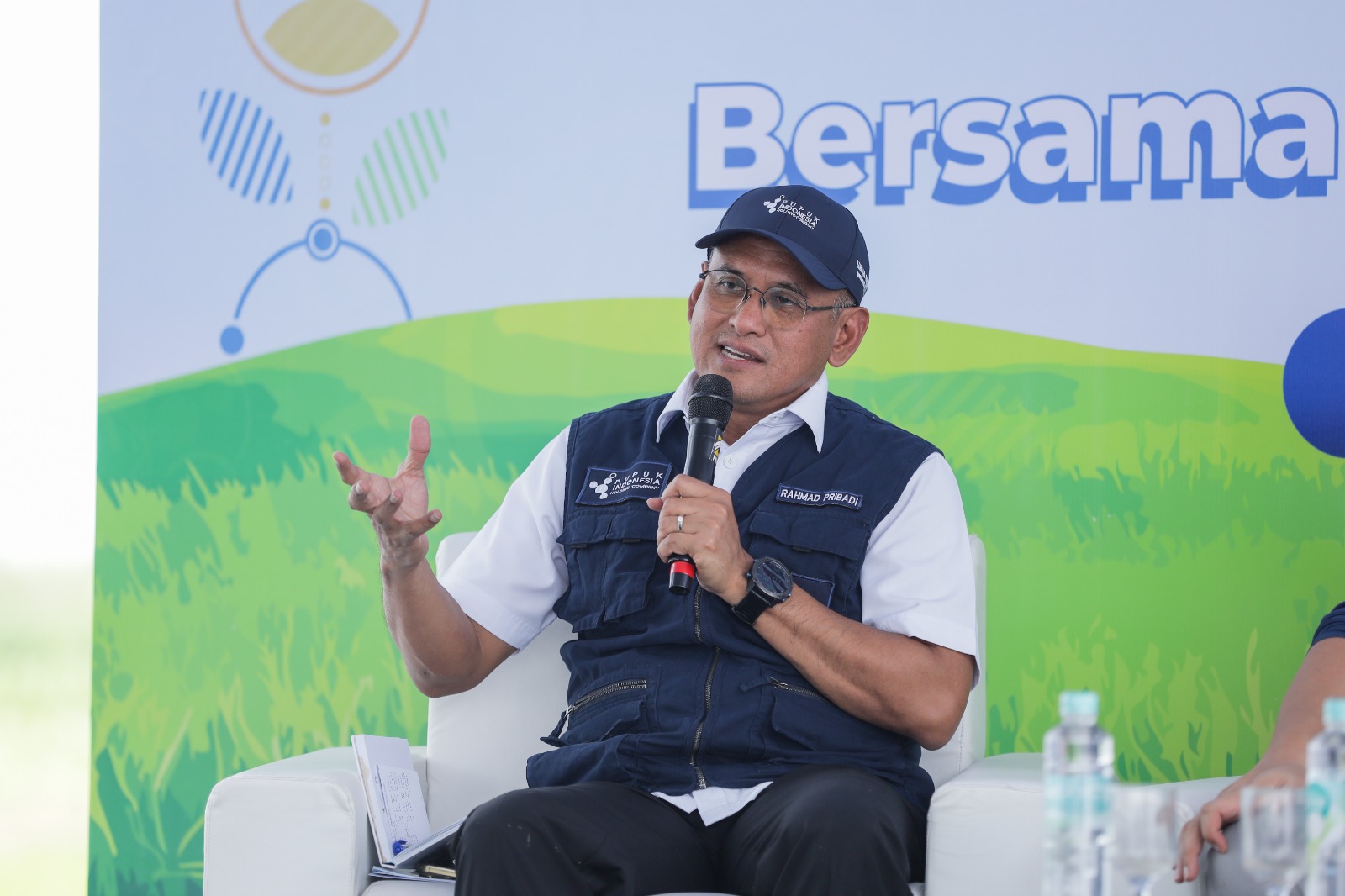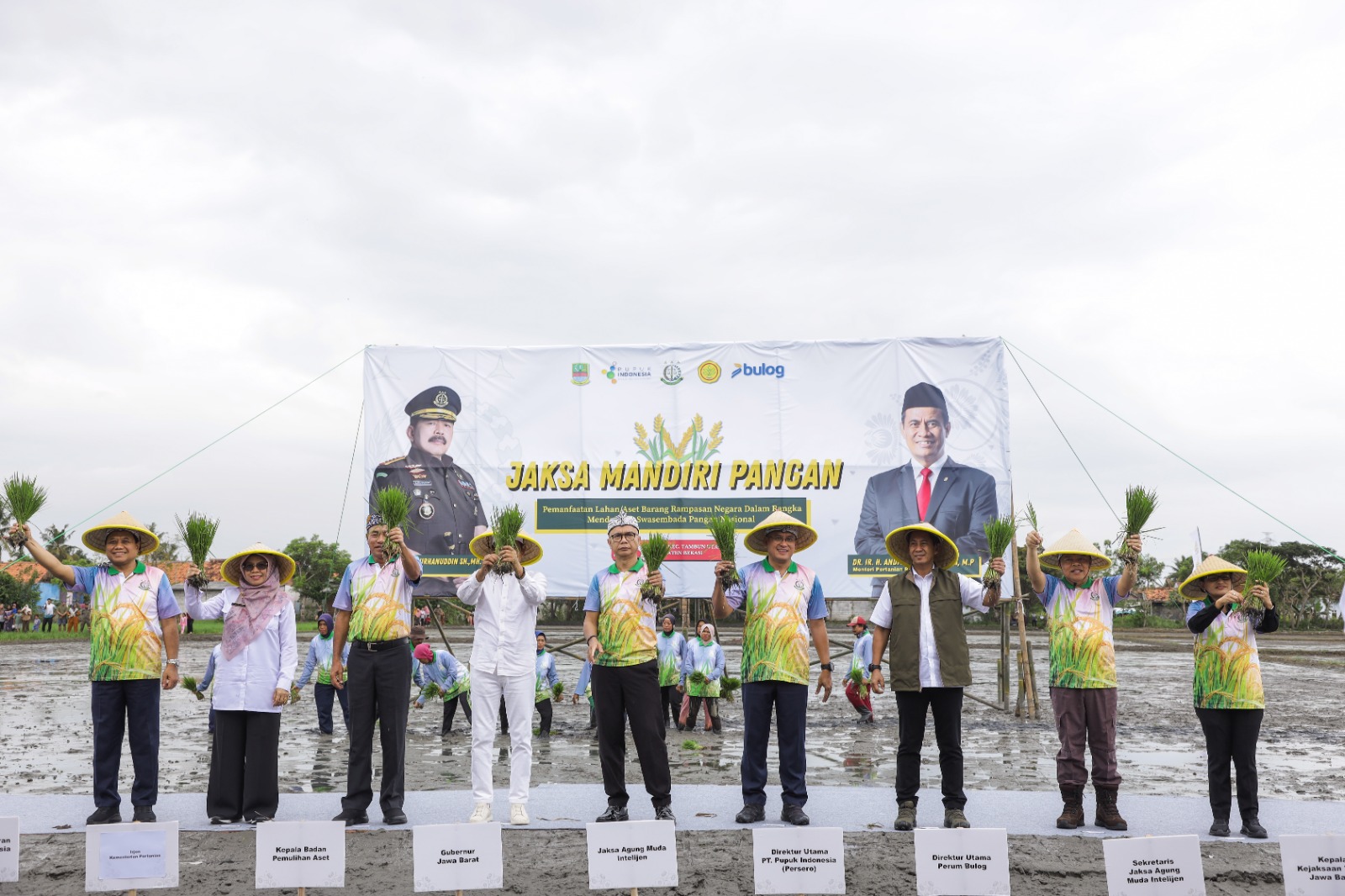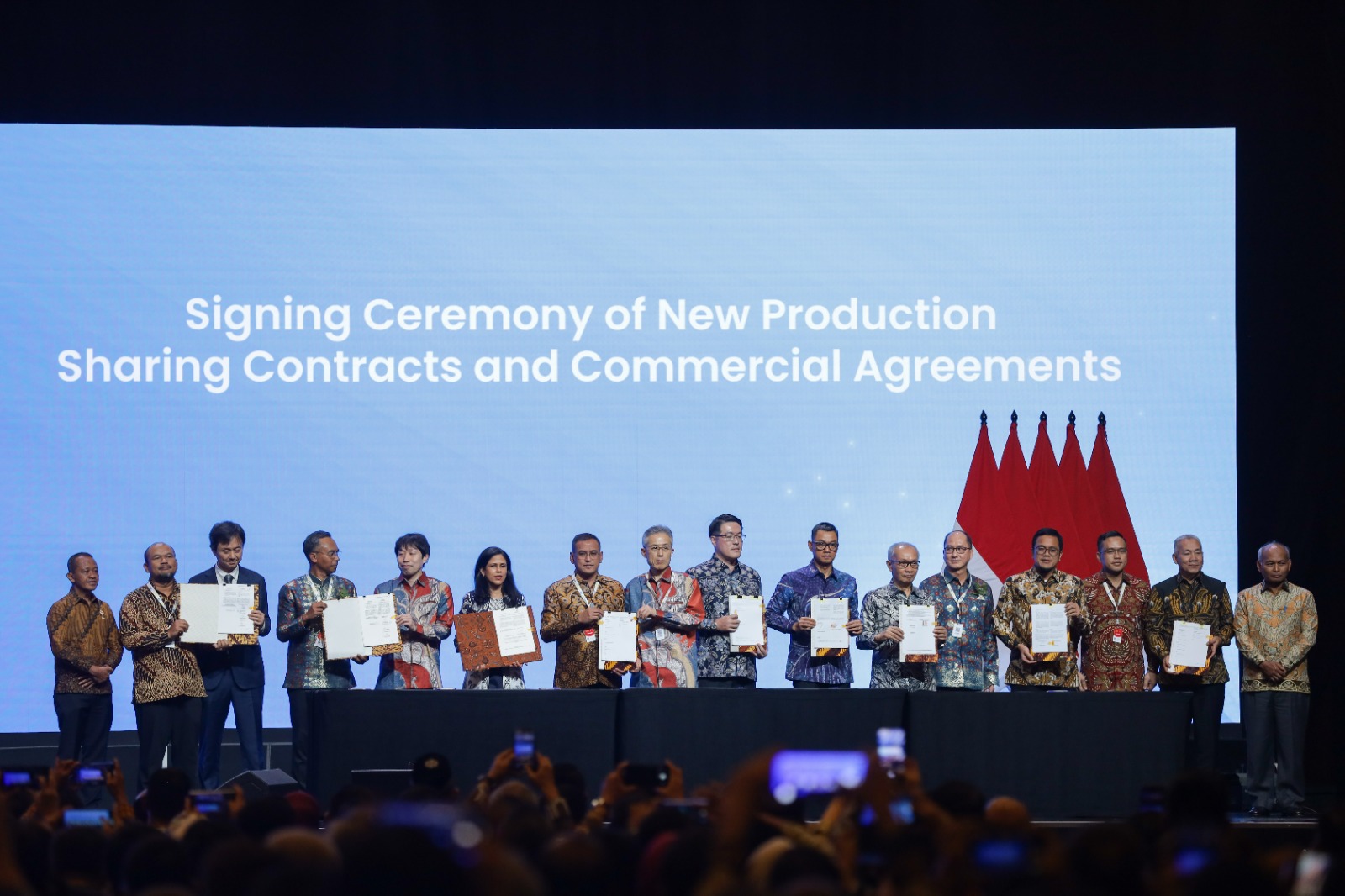Pupuk Indonesia Sambut Positif Usulan Singkong sebagai Komoditas Penerima Pupuk Bersubsidi

Jakarta, 27 Juni 2024 - PT Pupuk Indonesia (Persero) menyambut baik usulan tanaman pangan singkong sebagai salah satu penerima pupuk bersubsidi. Singkong sebagai komoditas alternatif pangan memiliki kandungan karbohidrat setara beras, sehingga upaya peningkatan produktivitas singkong dapat mendukung program ketahanan pangan nasional.
Direktur Pemasaran Pupuk Indonesia, Tri Wahyudi Saleh menyatakan dukungannya tersebut dalam webinar bertajuk "Masih Perlukah Subsidi Pupuk untuk Singkong?” yang diselenggarakan oleh ProPakTani, Kamis (27/6/2024). Tri memastikan bahwa Pupuk Indonesia telah mempunyai pupuk NPK yang diformulasikan khusus untuk peningkatan produktivitas tanaman singkong.
"Pupuk Indonesia berpengalaman untuk pengembangan pupuk NPK berbasis komoditas. Saat ini Pupuk Indonesia juga memiliki kemampuan untuk produksi pupuk NPK untuk pemenuhan kebutuhan petani singkong. Apabila Pemerintah mengeluarkan regulasi terkait pupuk bersubsidi NPK komoditas singkong, kami siap memproduksinya," ujar Tri Wahyudi.
Ia menambahkan, pupuk yang diformulasikan khusus untuk singkong adalah NPK Singkong Pusri. Pupuk ini memiliki kandungan Nitrogen 17 persen, Phosphatase 6 persen, dan KCL 25 persen. NPK Singkong ini mampu meningkatkan pertumbuhan dan produktivitas singkong.
Pupuk Indonesia telah mengenalkan NPK Singkong kepada petani di beberapa wilayah dengan sistem demonstration plot (demplot). Pupuk Indonesia juga membuat Kampung Singkong di Lampung Tengah, tepatnya di Desa Sriwijaya Mataram, Kec. Bandar Mataram. Desa ini menjadi percontohan pengembangan komoditas singkong yang dilakukan Pupuk Indonesia.
"Adapun dosis pemupukannya mencapai 700 kilogram per hektare atau sesuai dengan hasil analisa kondisi tanah. Pupuk Indonesia sudah mengedukasi petani agar mereka tidak sembarangan, kita lihat dulu nutrisi tanahnya seperti apa. Pupuk Indonesia sudah menyebar mobil uji tanah yang bisa membantu kelompok tani untuk menganalisa kandungan hara tanah pada suatu wilayah. Sehingga pemupukannya presisi sesuai dengan kebutuhan tanaman," jelas Tri Wahyudi.
Adapun bukti lain dari perhatian Pupuk Indonesia terhadap komoditas singkong, tambahnya, pihaknya telah melakukan demplot di lahan bekas tambang timah yang ada di Bangka Belitung. Lahan bekas tambang tersebut dikembalikan kesuburannya dengan menggunakan produk Pupuk Indonesia sehingga dapat dimanfaatkan untuk budidaya singkong. Kawalan budidaya tersebut juga menggunakan NPK Singkong.
"Petani singkong yang sebelumnya mendapatkan pupuk bersubsidi bisa terobati dengan kehadiran NPK Singkong. Persoalannya apakah pupuk ini bisa masuk ke dalam skema subsidi, ini yang harus kita diskusikan," tandasnya.
Terakhir ia mengungkapkan, Masyarakat Singkong Indonesia (MSI) telah menyampaikan kepada Kementerian Pertanian (Kementan) Republik Indonesia, bahwa hasil pengujian NPK Singkong di beberapa titik Provinsi Lampung, menunjukkan peningkatan yang signifikan terhadap produktivitas panen. Berdasarkan hasil tersebut, MSI merekomendasikan NPK Singkong Pusri menjadi pupuk yang disubsidi untuk komoditas singkong.
"Tahun ini Pemerintah menambah alokasi pupuk bersubsidi bagi petani, dari sebelumnya 4,7 juta ton menjadi 9,55 juta ton. Hanya saja ada sejumlah perubahan kebijakan, yang semula pupuk bersubsidi untuk 70 komoditas, sekarang hanya sembilan komoditas saja, dan singkong dikeluarkan dari penerima subsidi. Ini menjadi momen yang cukup baik untuk memasukkan singkong sebagai komoditas penerima pupuk bersubsidi," pungkas Tri Wahyudi.
Sementara itu, Direktur Jenderal Tanaman Pangan Kementerian Pertanian Republik Indonesia, Suwandi di acara yang sama mengungkapkan, lahan budidaya singkong di Indonesia terluas nomor tiga setelah padi dan jagung untuk komoditas pangan, yaitu sekitar 600 ribu hingga 700 ribu hektare. Sementara produksi dalam setahun antara 16 ribu hingga 17 ribu ton.
Namun produktivitas rata-rata nasional singkong masih 25 ton sampai 27 ton per hektare. Produktivitas ini masih bisa digenjot hingga 40 ton hingga 60 ton setiap hektarenya.
"Untuk meningkatkan produktivitasnya tentu dibutuhkan input yang baik, salah satunya subsidi pupuk. Kami menghimpun usulan petani di berbagai daerah. Memang banyak yang menyampaikan kebutuhan pupuk bersubsidi untuk tanaman singkong," ujar Suwandi.






